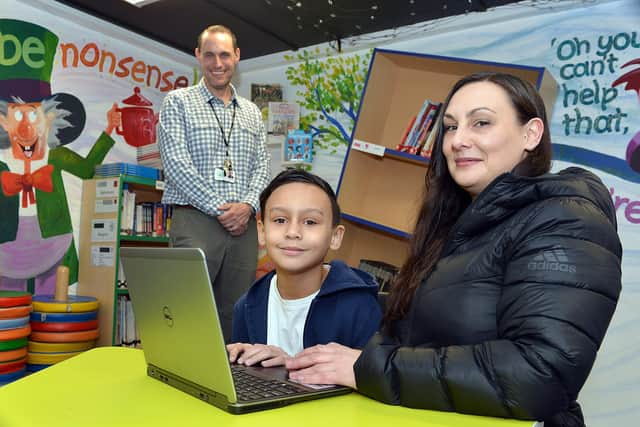Sheffield families still having to choose between providing food or an education in 'digital divide'
and live on Freeview channel 276
Data was collected from more than 100 schools across the city for the survey, which was conducted by Learn Sheffield
It sought to find out what progress had been made in attempting to tackle the ‘digital divide’ in Sheffield, which the Laptops for Kids campaign - launched in September 2020 by The Star, WANdisco and Learn Sheffield - was set up to address.
Advertisement
Hide AdAdvertisement
Hide AdStephen Betts, CEO of Learn Sheffield, said: “The responses to our survey show that supporting schools and families to address the digital divide is still an issue – Sheffield schools and colleges have really stepped up to the plate by quickly adopting new technologies to make sure children can learn during the pandemic and the work of Laptops for Kids has been absolutely vital in helping us to provide access to thousands of families.


“Schools and colleges are telling us they are committed to making greater use of technology to support learning, but we need to solve the issues of lack of access to devices and connectivity for all children in order to make this a reality.”
Headteachers told how some families have to choose between “eating or paying for internet services” and many are unable to get contracts due to their circumstances.
CEO of WANdisco, David Richards, who instigated Laptops for Kids, said: “Poverty is excluding young people from education simply because they cannot get online at home. This is a shocking waste of talent and is storing up social problems for the future.
Advertisement
Hide AdAdvertisement
Hide Ad“With Covid outbreaks in schools reaching the highest level since December, we urge the public and private sector to work together to help ensure that every child has access to the technology and connectivity they need to fulfil their potential.”
The survey - which had responses from all sectors including nursery, special, primary, secondary and post-16 education providers - also looked at how school attitudes to technology have changed during the pandemic.
It found that 44 per cent of schools would definitely be doing more schoolwork online and 50 percent of schools were thinking positively about it.
With the average number of requested laptops being 45 per school, a total of 2,000 devices are still required to close the ‘digital divide’ in Sheffield.
Advertisement
Hide AdAdvertisement
Hide AdHenri Murison, director of the Northern Powerhouse Partnership, said: “The digital divide is yet another hurdle facing children, in particular those from less well-off families, in the education recovery. We know that the impact of the past year hasn't been felt evenly across the country. In the North – where widespread disadvantage already has a huge impact on education attainment – children spent far less time in the classroom than elsewhere in the UK.
“Children may be back in school but digital poverty means many are still locked out of further opportunities to learn and, with cases rising, there is a real risk the education disadvantage gap could get worse before it gets better."
For more information or to make a donation, visit here.